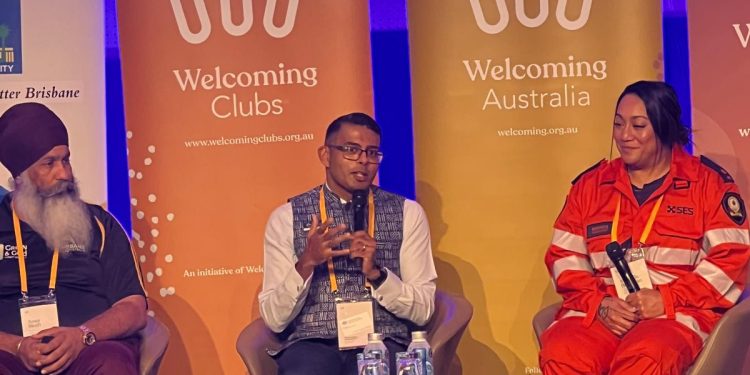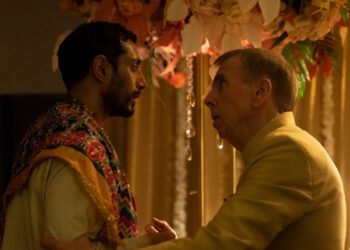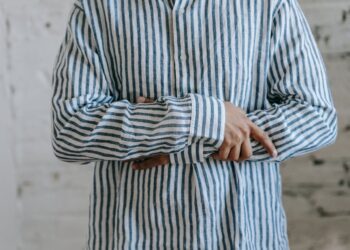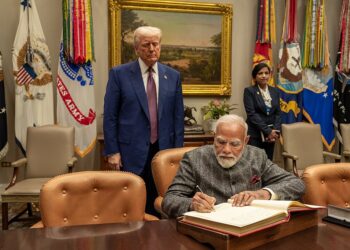What does belonging feel like? How do we decide who lives at the margins and who at the centre? What questions of value, belief, culture, and identity shape who we are as people, and the kind of communities we create?
This year’s Welcoming Australia Symposium explored the theme #whatbringsustogether and was supported by the Scanlon Foundation, Australian Department of Home Affairs, the Queensland Government, Brisbane City, SSI and the Ethnic Communities Council of Queensland (ECCQ).
Conducted over 1-2 May at the Brisbane Convention Centre, this annual Welcoming Australia Symposium asked more questions than it answered, which is what made it an incredibly powerful space of deep sharing, listening, and learning.

The welcome to country was delivered by DJ Sandy and his father, Derek Oram from Yerongpan Aboriginal Dancers. He spoke with love and great knowing about the lands that we are on, the rivers and mountains, the birds and animals that inhabit it and the great peoples who have called it their home for millennia. It was a truly moving experience that set the tone for what was to come.
Hon Andrew Giles MP Minister for Immigration, Citizenship and Multicultural Affairs set off the proceedings and spoke of good policies being foundational to a culture of belonging. Touching upon the rise of antisemitism and islamophobia, he acknowledged the distress in our communities at the ongoing brutality in Gaza and pledged to work with all affected communities to provide support.
Broadly, he spoke of this as a time for communities to come together, support each other and reject violence and hatred of any kind and to remember that the vast majority of Australians value a diverse Australia and want to live in a country in which people feel safe to express who they are including their faith and heritage.
‘Everyone belongs here. That’s why we have been one of the most successful multicultural nations. Equally everyone should feel, must feel as though they belong. …we must call out and stare down voice of hate in our communities and those who spread hate online.’
Next up was the First Nations Perspectives Keynote delivered by Mundanara Bayles, Managing Director, BlackCard who promised to shake things up, which she undoubtedly did! With an absolutely electrifying speech, she presented a clear-eyed and gut-wrenching account of the history of her family, representative of countless aboriginal stories. Stories of stolen women and children, of rape and abuse, slavery, and dehumanisation. She also spoke with clarity and wisdom about reclaiming her power, of ladies in her family who went on to shatter stereotypes and break through glass ceilings. She spoke of community and culture, of respect for the land, and for the elders. ‘In one thousand Aboriginal languages, there isn’t one word for invasion.’ ‘In our culture children are autonomous beings’. Brilliant powerful oratory from a true leader. She runs the blackmagicwomanpodcast so do go give her a listen!

Soon after were Stories of Welcome and the panelists were Orode Cyndi Eke-Okoro, President of the African Professionals of Australia, Qld Chapter, Raisera McCulloch Founder, Indigenous Giving Circle, Mohit Trivedi, Head of Student Success & Wellbeing at Experience Gold Coast and Dr Bahareh Dibadin, Hub Leader, Community Hubs Australia.In a rigorous discussion, they spoke of grassroots engagement, challenges of funding, and creating safe spaces for migrant communities. They also discussed the value that international students bring to Australia, through their skills, education, culture, as well as their spending power.
Facts and Other Lies: How to Navigate and Combat Mis and Dis-Information was a revelatory session as the Global Perspectives Keynote was delivered by Ed Coper Author, Facts and Other Lies. He spoke of how MAGA disinformation systems are making their way into Australia, seen particularly during the recent referendum. He unpacked ways in which information is been weaponised through digital media to impact opinions, decisions and votes that have far reaching consequences for societies. ‘First story wins, silence chooses a side, facts don’t matter’ – important food for thought, as we contemplate the media and digital landscape and reflect on our own biases and subjectivity.
One of the things that stayed with me from Akol Mager’s speech was ‘nothing good or bad is absolute.’ He serves as the Settlement Coordinator at CatholicCare Social Services in Toowoomba. He spoke with great compassion about how migrant and refugee children face challenges as they try to integrate. From not being placed in the right class levels to absenteeism, there are issues that must be systemically addressed. One of the solutions he proffered was to provide English classes to migrant children who are not yet proficient in the language and then gradually move them into trade-based training. Migrant parents must be supported with trade opportunities where gradually the children could also get involved. This would be a way of respecting the dual culture that these families have to contend with, while also helping them gain independence and thrive.

A personal favourite for me – a leitmotif of sorts for the entire symposium – came from Dr Nora Amath, Adjunct Research Fellow, Griffith University, who said that for us to understand and hold forth on inclusion, we must deeply understand what exclusion looks like, what it feels like – how it impacts the individual and the community.
Ara Rasuli from Women Life Freedom shared her poignant and lived experience of coming to Australia as a refugee with her parents and spoke of her work supporting women.
Mark Yettica-Paulson, Chief Director of Super Native Unlimited and Indigenous Queensland Leader spoke of how young people learn to code shift. One of the important questions for society to ask is – who benefits from keeping us apart? He spoke of how indigenous communities trade on culture – the location of a person is understood by: who do you belong to? He pointed out that the dominant system doesn’t trade on culture – so there are natural fissures in how communities relate to and understand each other. Therefore, what are the ways to meet in the middle? Would the dominant culture also be willing to explore and bring forth their cultural history – for example, if white Australians had Irish or Welsh or English ancestry, would they be prepared to talk about their own identities and meet aboriginal communities with something more to offer of themselves as well? This was an important paradigm shift and an interesting way to look at belonging, predicated on a leaning in from all entities.
Fatima-Zahra Blila, from Welcoming Universities Advisory Committee spoke of a landmark framework that they had developed – A Welcoming Universities Standard which would help move the needle from welcoming to belonging. She spoke eloquently about the need for such a standard in a country as linguistically and culturally diverse as Australia, and how welcoming, inclusion and belonging should be a framework for building educational attainment, social and economic participation, and success.
Day one concluded with Aleem Ali, CEO, Welcoming Australia wrapping up with his reflections on what brings us together. With humility and warmth, he spoke of the symposium being a space of deep listening and learning and how he has a keen sense that what divides us also unites us. At this moment in time, in a world so very fractured, his grateful while grieving message (attributed to Erfan Daliri, friend of Welcoming Australia and Founder of Newkind Social Justice Conference), conveyed a quiet and powerful truth that many in the audience visibility responded to.
I left the day with these thoughts: We suffer through much, in many ways and many of us suffer far greater than others, and yet – we are all walking each other home. For this opportunity, we are grateful. Let us hold hands. We cannot, must not let go.
The next day dawned bright and clear and even though Aleem Ali had warned us that day two was going to be just as engaging, let’s just say I was not prepared for what was to come.
Unfortunately, I missed the opening provocation from Dr Faiza El-Higzi OAM, an academic and a nationally recognised social advocate, and made it in time for the next session, with an intriguingly tilted question, ‘What if Today wasn’t a Struggle?’
Taking the stage were two extraordinary women who shared stories of searing truth from the depths of their lived experiences as black women in Australia.
Akec Makur Chuot , the first black Australia AFL player took the stage to speak of her inspiring journey, and the hardships and challenges she had to overcome based on her race. Assistant Professor Kathomi Gatwiri Fellow and President of Australian Women and Gender Studies took us on a journey to ‘becoming black’, her first reckoning with the colour of her skin. She shared: When my previously ‘race free’ body entered the White majority Australian space, I was made a racialised object. …being black took multiple meanings here. It is not just the natural pigment of your skin; it is the completely indignifying meaning that is attached to being black and African in Australia.’
We could only listen and try to understand in growing horror as she shared the terrifying incidents of sexual abuse and threat to life she faced in Australia as a young black woman. Composed, and with immeasurable poise, she spoke of restoring racial dignity. She defined it as ‘the racialised aspect of Dignity that can be experienced on various personal, ideological, social, political cultural and institutional levels and relate to one’s sense of feeling human.’
To listen to her words felt like listening to the voices of all people of colour who have faced and continue to face this very loss of dignity, in overt and covert ways. It was to hear that primal scream that says, enough! Needless to say, there were many tears in the room, a palpable sense of being in the presence of something sacred and powerful, a human story that moved each of us. In that moment, even the absolutely brilliant and professional MC, Janice Peterson, from SBS struggled to hold her composure. This was riveting, meaningful programming; platforming of two African women who embody the terrible impact of racism, while also allowing us to experience the joy in their personal triumphs and glory.
It did make me wonder though, while we rightly fete and celebrate women like Akec and Kathomi for being the role models that they are, must we set the bar so impossibly high before we celebrate black people or people of colour? Must we not equally take their stories as testament to how unfair and discriminatory systemic racism is, and question why it demands such extraordinary-ness of people of colour to be worthy of being lauded?
Thankfully we broke for tea after, giving us a chance to reflect. We returned to a reframing Volunteering discussion. On the panel Amar Singh JP Founder and President, Turbans 4 Australia, 2023, Australian of the Year Local Hero, Andy Parkinson Sector Engagement Manager, Ravin Ramachandran Nair Community Liaison Officer, Department of Home Affairs, Maranda Buchanan Volunteer, State Emergency Services (SES), and the impressively named, Tuifaasisina Tapenaga Junior Polataivao-Reupena President of the UQ South Pacific Islander Association.
While Amar Singh spoke of how his faith leads him to give back to community and volunteering helps migrants integrate better into Australian society, Ravin spoke of how his cultural context of volunteering is essentially service. Tuifaasisina shared some of the challenges faced by Samoan students and young people as they seek to integrate into Australian society.
Andy Parkinson shared some of the challenges in building engagement in the student volunteering space. He shared an interesting perspective of a young person he encountered refusing to volunteer at a soup kitchen saying he did not want to support an institution that is part of a systemic framework that enables homelessness. Clearly, to engage young people, we have to understand their worldview and politics which may be quite different from what we know and understand. Maranda shared a wonderful insight into how all volunteers at SES leave all other differentiating identities outside the door and band together in their orange uniforms once they are a part of the team.
I was unable to attend the Leveraging Major Events for Community Outcomes session. The speakers were Dr Adele Pavlidis Associate Professor in Sociology, Griffith University, Dr Stephen O’Grady Welcoming Clubs Queensland Project Coordinator, Welcoming Australia, Tim Klar CEO, QSport and Courtney Fewquandie General Manager, Indigenous Football, Football Federation Australia.

There was also the Launch of Inclusive Guidelines for Aquatic Facilities by Sarah Scarce Founding Director, The Aqua English Project Ltd and Zarin Hakimi Swim Logan, Aqua English & Olympic 2032 Legacy Committee.
The next session I attended was on Short-Term Welcome. The panelists were Joseph Youhana co-founder, AACSAN and refugee advocate, Palani O Thevar Tamil Community Leader, Edwin Adrianta, Third Queer Culture and Cate Gilpin, Welcoming Cities Queensland Coordinator and Welcoming Universities Coordinator.
Joseph was appointed to serve on the prestigious Australian Refugee Advisory Panel, where he provides invaluable insights to the Australian Government on refugee-related matters and he spoke of the challenges that minority refugees face. Palani spoke passionately about the unsettling impact of the word ‘temporary’ on the human experience. He shared how many people caught in the uncertainty of the situation took their own lives or live in trauma and fear since there feel little stability. He also spoke of the mental health impact of such circumstances and how often the systems are not engineered to support such individuals.
Dr. Edwin shared a sobering insight when he spoke of the terrifying circumstances in which people often escape their home countries and said it was unrealistic to expect them to have all their paperwork such as pay stubs from previous employment in order, for them to integrate into the workforce. This is compounded for people from the LGBTQA communities since they are often ostracized by their families and set adrift.
Rochelle Courtenay Founder and Managing Director, Share the Dignity spoke on the Bloody Big Survey and her work in ensuring all women have access to menstrual products and care.
The last session I attended was on supporting newcomers beyond employment. The panelists were Julia Spicer OAM Queensland Chief Entrepreneur, Aleem Ali CEO, Welcoming Australia and Paul Nunnari Paralympic medallist, performer and disability advocate.
What stood out for me was Aleem speaking of the whole of community approach. He stressed on the fact that working with government, it was incumbent upon us all to think of who was being invited to the table by whom and why, who is not at the table, and often asking these questions will lead us to becoming more inclusive. Julia spoke of the idea of ‘employee readiness’ in having a diverse workforce. She also spoke of inter-generational privilege, family connections, and that fact that the dominant culture must recognise their inherent bias and affiliations in the way they hire. I couldn’t help but draw parallels to the conversations about caste based privileges and affirmative action in the Indian context.
And finally, at the end of a two-day heart and mind expanding experience, we ended with poetry, delivered by the irrepressible Anisa Nandaula, a poet, playwright, educator and published author. As she performed her work, expertly weaving together the messages and ideas shared over the two days, she invited participation with table-top percussions, a perfect foil to the musicality and rhythm of her lines. As I joined the audience, and the finger drumming reached the crescendo as one, our ears tuned to the singular voice of a young black woman, completely in her power as she guided us, it felt like a fitting finale to the question, what brings us together?
Highlights of the Event























